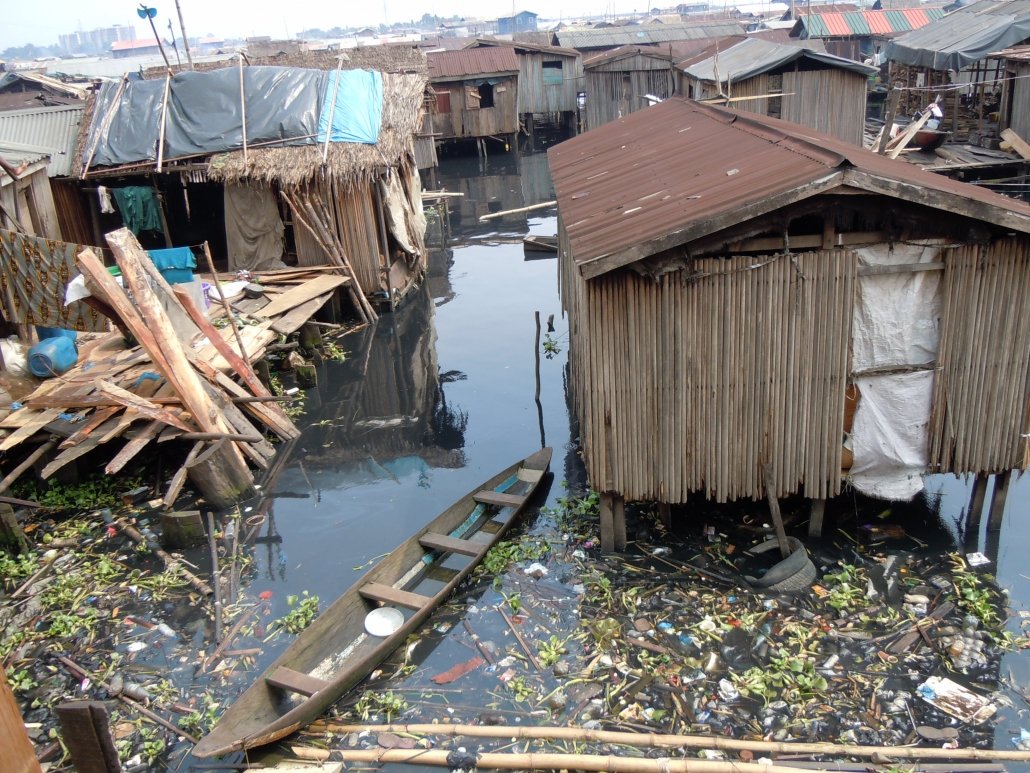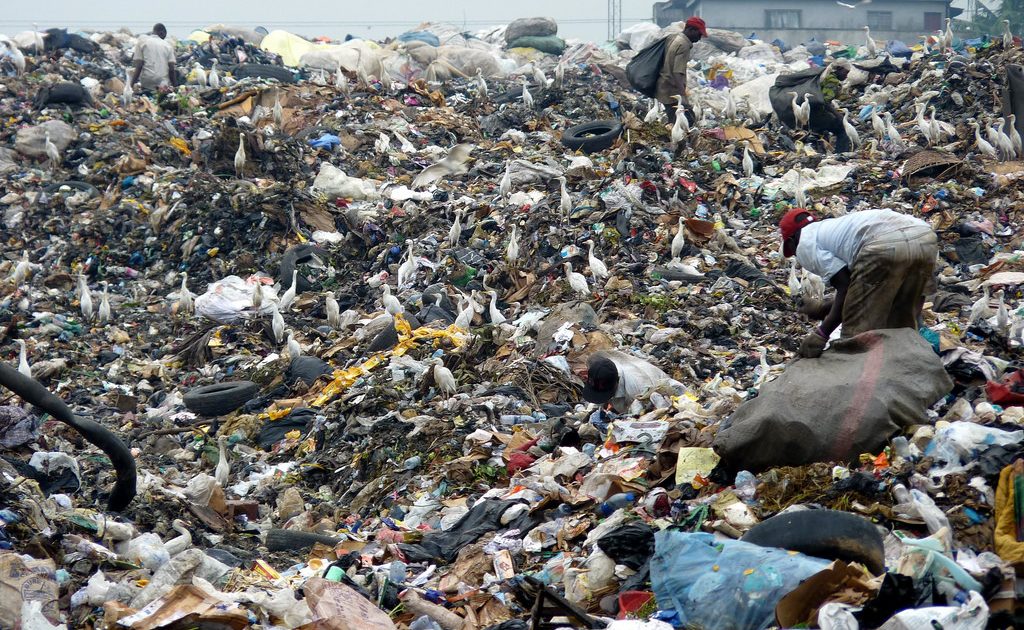Urban Challenges in Lagos – clean water, sanitation and energy
Water Supply
Although Lagos is surrounded by water, the most common way of obtaining fresh water is through street vendors selling water in containers. Just 10 per cent of the population of Lago have a piper water supply that has been treated. The remaining 90 per cent rely on wells or sink boreholes to reach underground water supplies or rely on street vendors. In 2016, daily demand in the state stood at 724 Million gallons while production was 317 million gallons, leaving a gap of 407 million gallons. Water in the lagoon is unsuitable for drinking because it is salty and polluted.

Makoko Squatter Settlement
The Lagos State Water Regulatory Commission began regulating water supply in 2012. Their role is to regulate water supply vendors and issue licenses for boreholes. The commission’s greatest challenge is providing safe drinking water at a reasonable price.
The clean water piped to ten percent of Lagos’s population originated from water treatment plants that have extracted river water.
There is a significant risk of extracting contaminated water from wells and boreholes. Sewage can pollute groundwater, and salt water from the lagoon can make it unsuitable for drinking. This problem will increase with sea-level rise.
Open drains transport surface run-off into rivers and the lagoon. This surface water is often polluted by sewage.
Sanitation
The number of diagnosed cases of diseases such as dysentery and cholera has increased in Lagos. This is due to drinking water containing chemical and bacterial pollution. The main cause of pollution is the city’s lack of effective sewerage systems. Sewage is washed away by rainwater into open drains. This water then carries the pollutants to rivers and the lagoon. Sewage also reaches groundwater through leaking septic tanks and pit latrines (pits used to deposit human waste). Pollutants can then contaminate water in wells and boreholes. The water sold by street vendors can also be affected as the water comes from the same sources.
The densely packed squatter settlements make it very difficult to provide proper sanitation.
Energy
Despite Nigeria’s vast oil reserves, energy is a significant challenge in Lagos. Large organisations and the wealthier members of Lagos society rely on backup generators.
New power stations are being developed, including one powered by methane from the Olusosun landfill site.
Related Topics
Use the images below to explore related GeoTopics.



